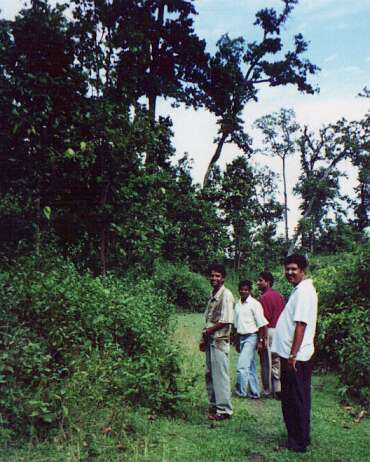
-
To enhance public awareness regarding environmental protection through physical works for environmental conservation to conserve various vanishing natural resources, animal, birds and vegetation.
-
To promote the empowerment, upliftment and protection of women, primitive people and children.
ENPROS believes that it is the collective responsibility of all the community to achieve an environmental balance through understanding our environmental problems - social, economic and physical - first by appraising environmental challenges at the local level, identifying positive collective action, and mobilizing resources appropriate to the tasks.
- To conserve cultural
and social environment alongside the natural environment.

- To raise the social and economical standard of the community.
- To persist in efforts to maintain a healthy and clean environment.
- To play the role
of supporter by providing for participation of local workers in development
works.

- Increasing investment in community priorities is socio-economically profitable in terms of putting in place an enabling environment for long-term economic growth. It also improves the allocation of public resources, which are too often tied to political ends having insufficient linkage to societal needs.
ENPROS has made women's participation a priority by including members on its working committee and making women's development a crosscutting priority in the planning process. Improving women's standing in the planning process is as much about fostering voice among women as it is about changing men's behaviour and attitudes. Accordingly, ENPROS works with men and women to promote gender equality. Too often in Nepal, approaches to gender equality exclusively target women when the problem exists in the relationship between men and women. ENPROS's target groups are women and lower caste people as these are seen as the most marginalised groups. Numerous problems and challenges exist in Jhapa's communities. However, ENPROS realises that reliance on any individual or community perspective is not enough. Therefore we must adopt a participatory approach to identify and prioritise needs according to the diverse communities that reside in Jhapa.
Strategically, the social-cultural sustainability of development projects is directly linked through their goals, objectives and activities concerning gender, ethnicity, religion, local culture and economic and social situation. The principle of local self-reliance is at the heart of ENPROS's philosophy. In this respect, ENPROS is challenging traditions that have historically excluded people at the margins of the development and environmental planning process, namely women and low caste groups. Relying on local people to solve local developmental challenges is reflective of ENPROS's approach since its establishment in 1992.
Given the clear complementarity between environmental concerns, the capacity to use new technologies and micro-finance, ENPROS has developed a rural finance strategy which it has successfully been applying since its inception in 1988.
Prevention of disease and maintenance of health represents multiple benefits through investment in rural quality of life and protection of the livelihood capacities of rural farmers. ENPROS works to enhance the capacities of Village Health Workers through training in potable water detection and protection, oral hydration therapy, basic sanitation, prevention of maternal mortality and infant delivery, and the use of family planning.